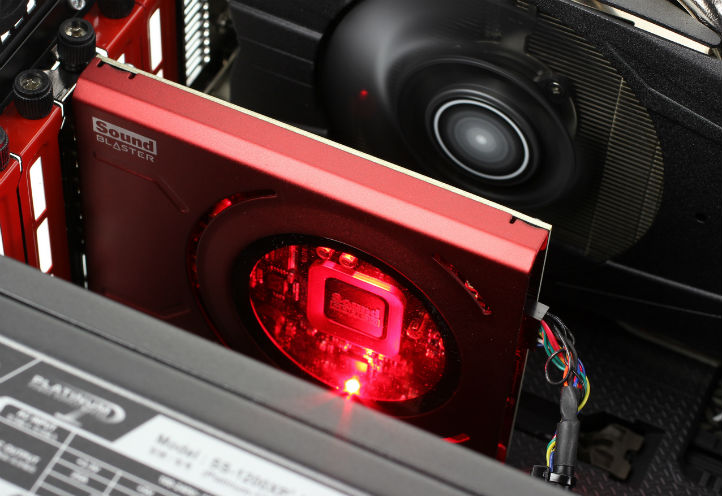When the motherboard manufacturers first started to include audio chipsets integrated on their motherboards, everyone accepted it with a very warm welcome. Although flawed with some issues, it was a huge leap forward for onboard peripherals and it meant that one less card was required in the system to produce sound. However, due to developments in software, particularly gaming and other audio intensive applications, it was soon realized that the Audio chipset installed on the motherboard was heavily taxing the main CPU. This meant that performance of the entire custom PC was reduced, therefore gaming and other tasks usually took a performance hit.
Sound cards never went out of production, but at that point in time they were back bigger than ever. Everyone needed them as onboard audio became choice #2 for many gamers and advanced PC users. Fast forward to today and onboard audio chipsets have come a long way. Processors have also come a long way. Where at some point in time we had issues with CPUs handling audio encoding, we now have CPUs capable of delivering stunning graphics performance without sacrificing resources. This leap in CPU technology has also allowed a leap in onboard audio chipset. Companies such as Realtek continue to innovate and bring new audio chips to the board manufacturer. They went from supporting basic audio to handling multiple channels such as 5.1 and 7.1 setups, with some even providing SPDIF or optical ports as well.
So now the big question becomes, with where we are now in terms of onboard audio technology, does your system need a sound card?
Yes and No. The need for the sound card is still there, however today’s sound cards are very sophisticated and provide a much wider array of features than the cards of the past. Therefore if you need to rely heavily on quality equipment if you have or run some kind of a studio with a digital audio workstation PC, then sound cards are a must. Onboard cards will probably not cut it for high quality use such as that. Also, onboard cards come with limited amount of ports, therefore connecting them to different peripherals in your studio can be a pain.
Audiophiles may argue that some sound cards are a must-have and that onboard sound cards are no good. If you identify yourself as such, then take that advice and go with the dedicated sound card that is highly recommended.
If on the other hand you don’t classify yourself as a true audiophile and you simply want great sound, onboard audio chips are good enough. Speakers will also play a big role in how good your system sounds, but having a quality sound chip is required. Bottom line is that for most basic, intermediate and even advanced tasks, onboard audio controllers have come a long way to provide that experience without sacrificing performance. If you need to go above and beyond what these chips can do, then invest into a dedicated sound card.
If you believe that the CPU is a bottleneck in the gaming or rendering performance of your computer, you could consider adding a discrete sound card to share the load with the processor. You could see and impressive jump in audio quality. Similarly, if your onboard audio chipset doesn’t quite cut it, or doesn’t have all of the ports you need (like optical, or dedicated subwoofer ports) you could upgrade your sound experience with a sound card instead if choosing to upgrade the whole motherboard.
